
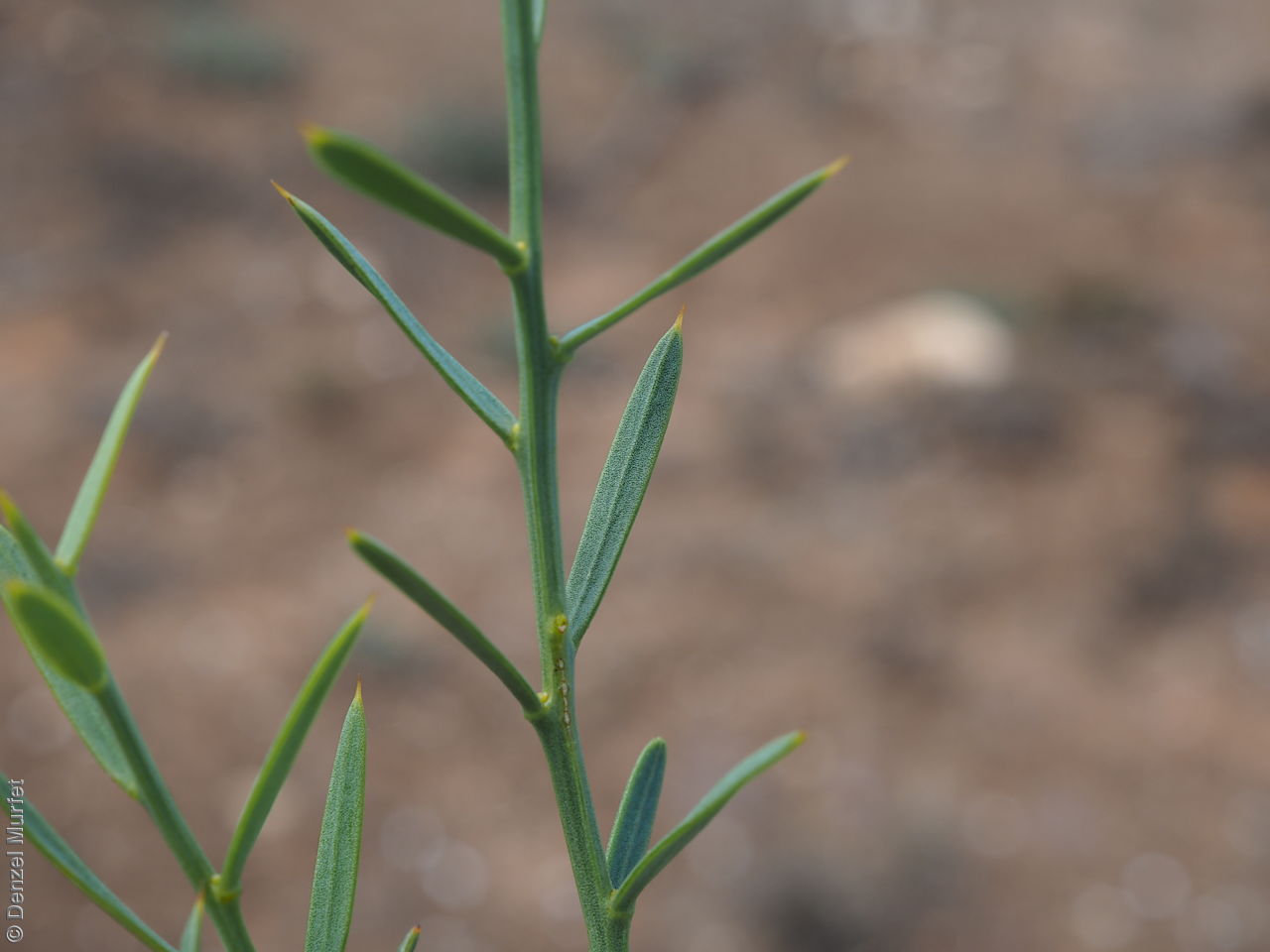
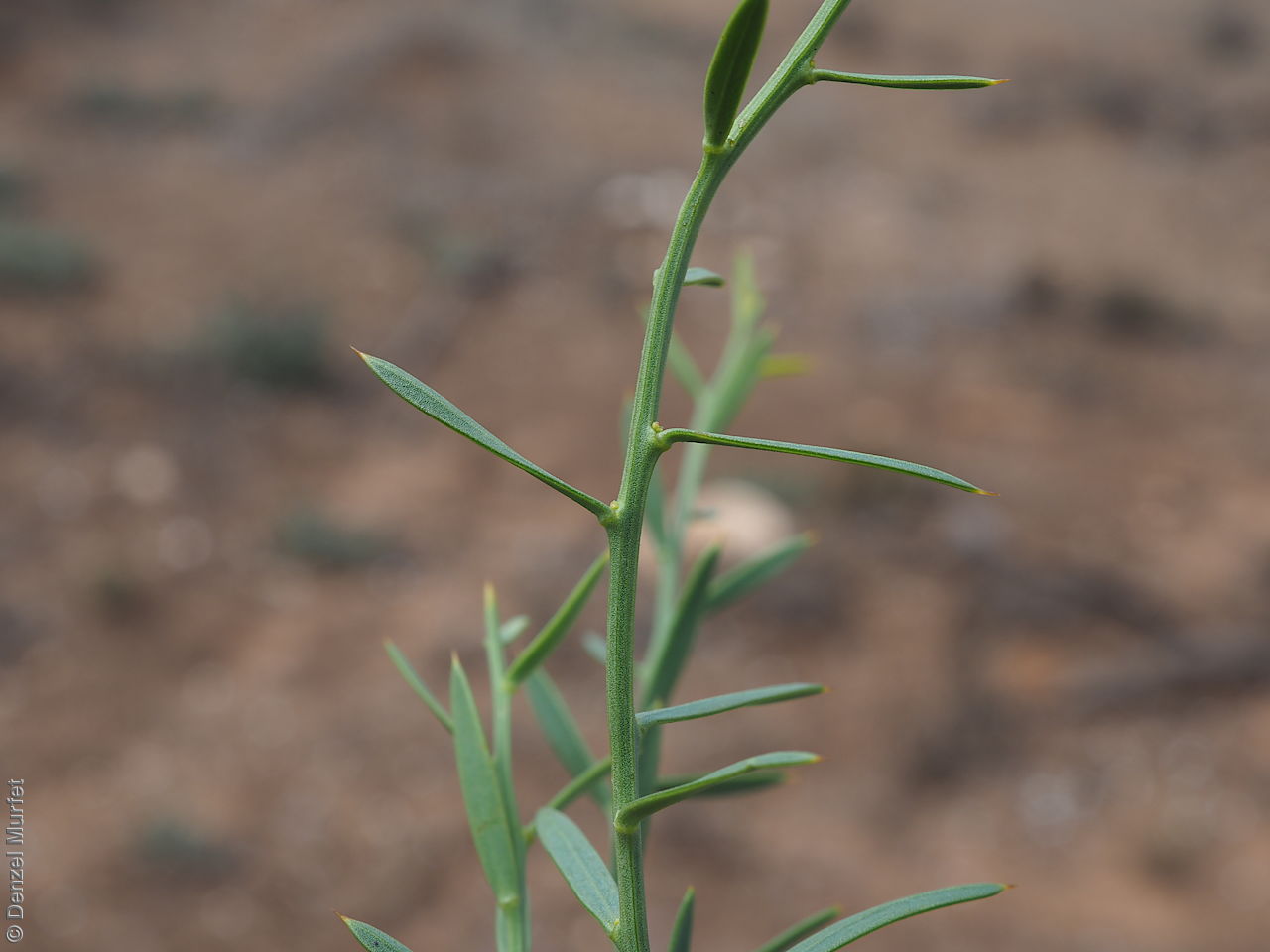

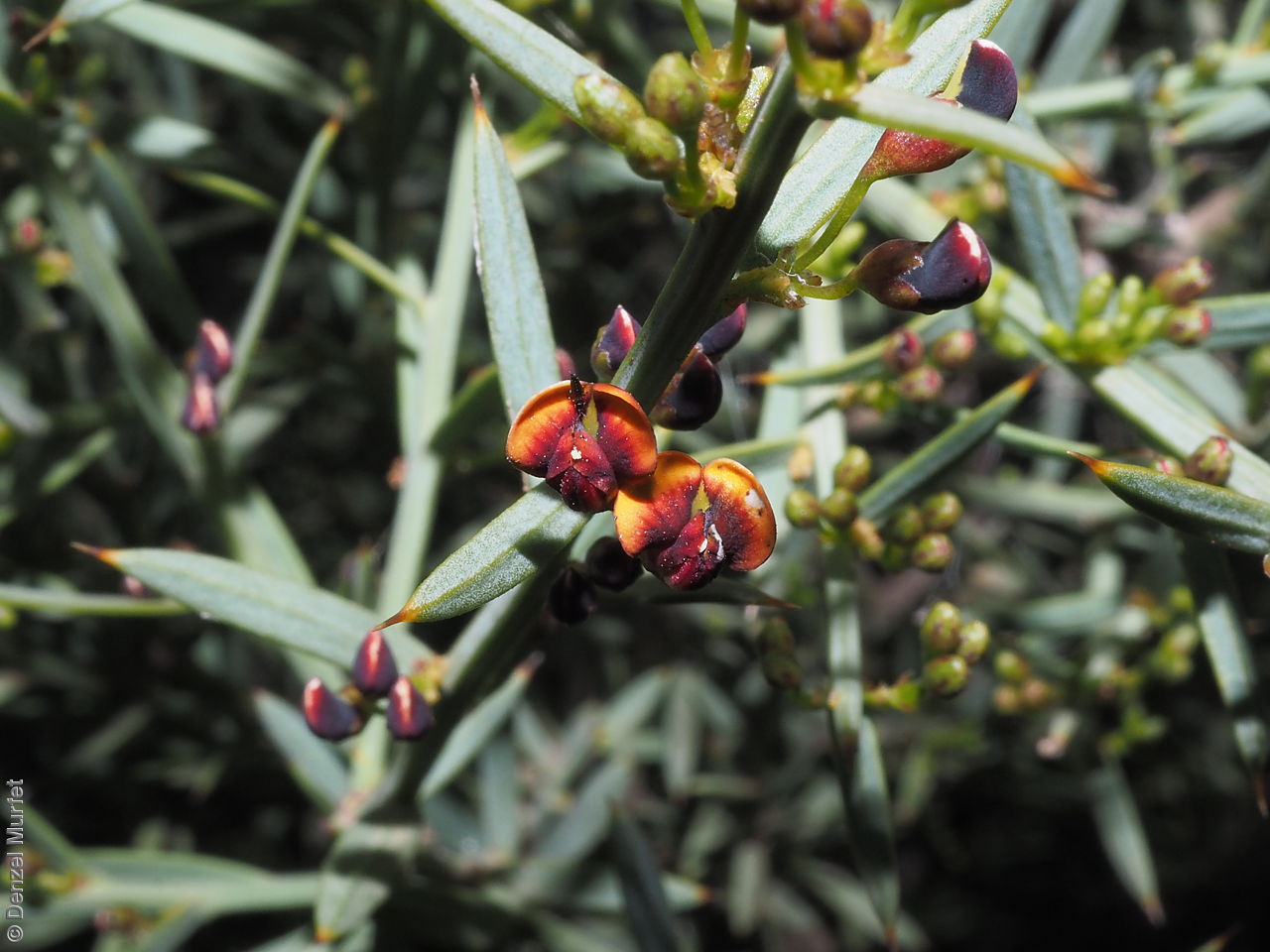
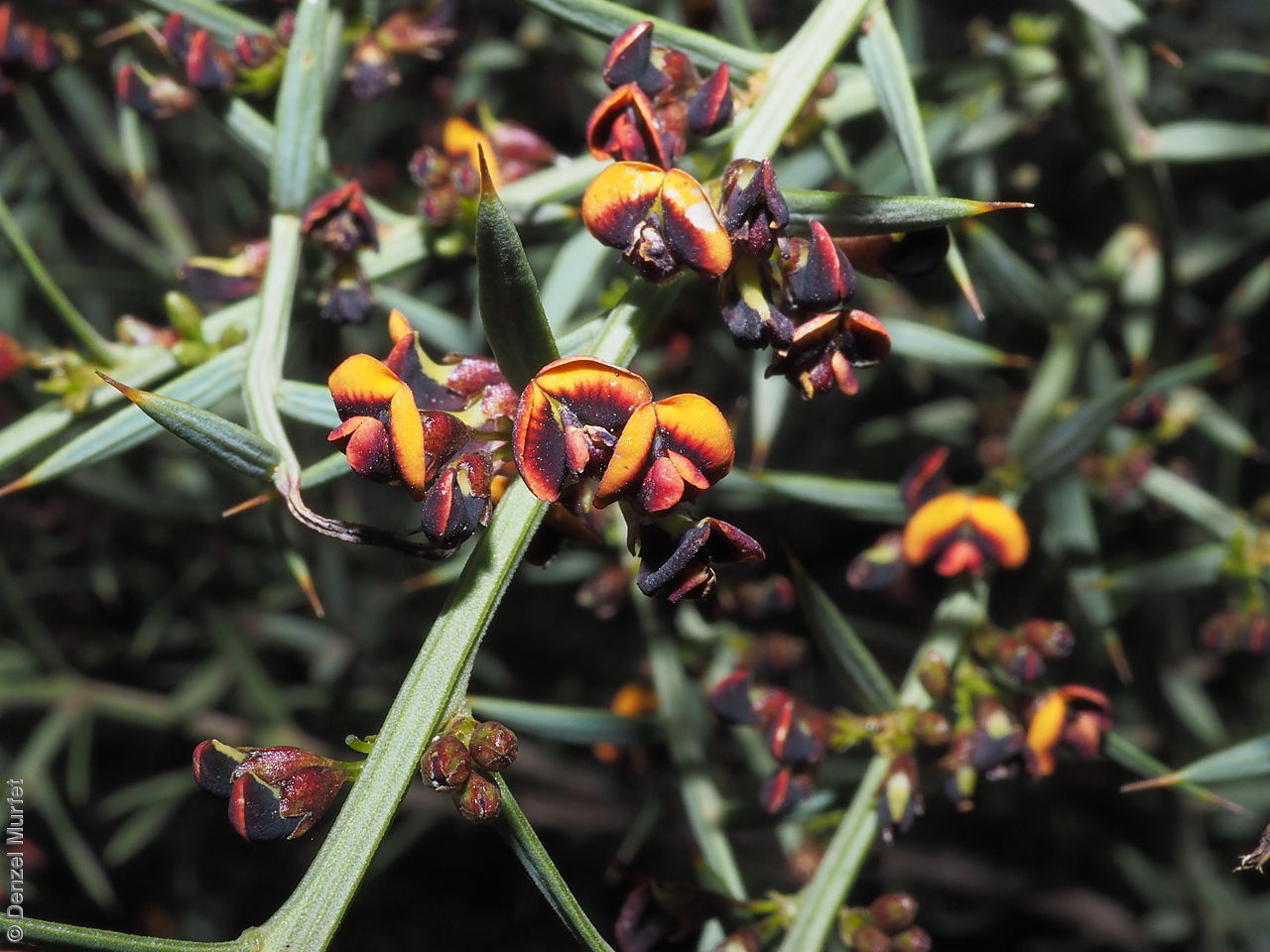
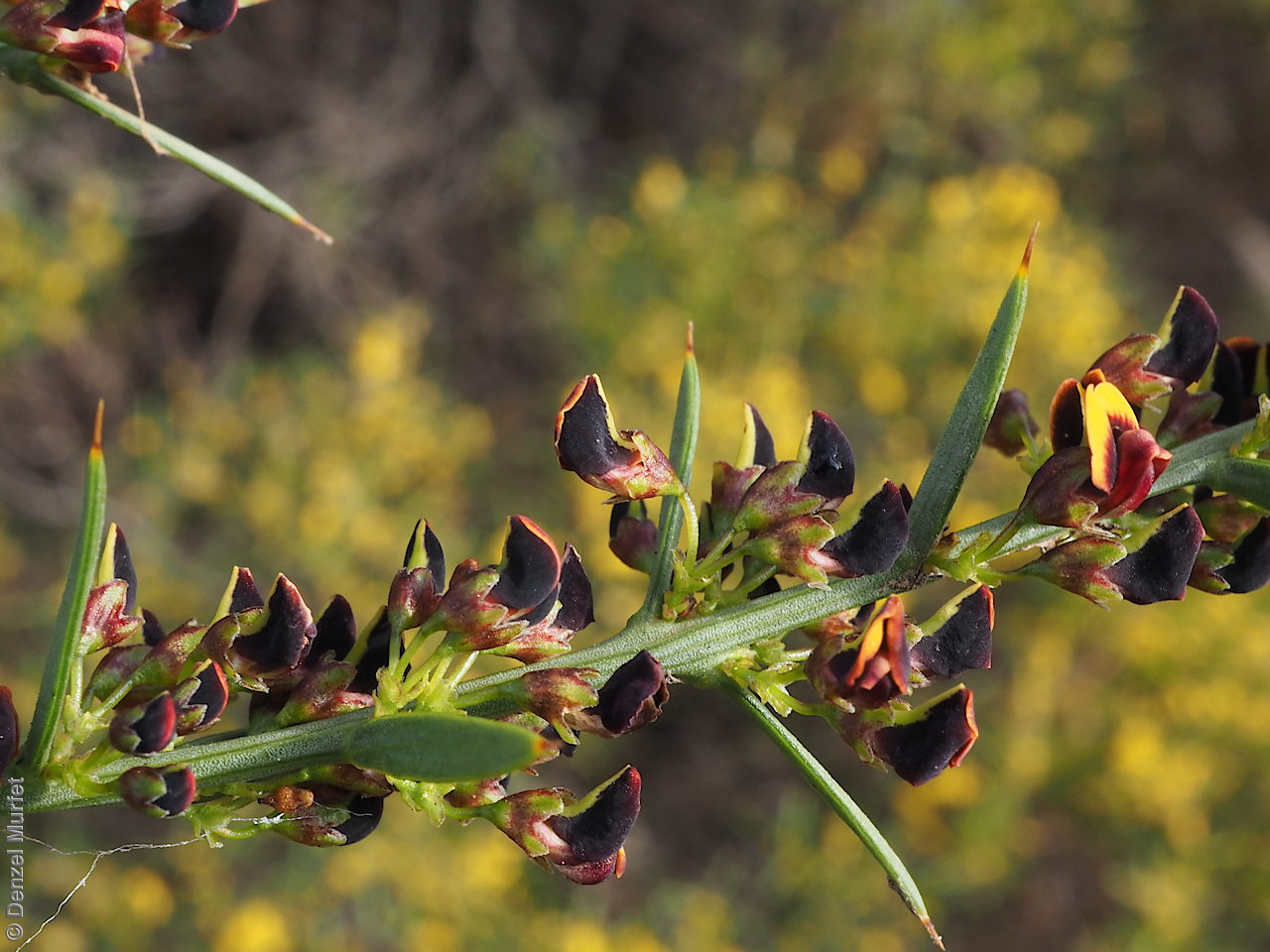
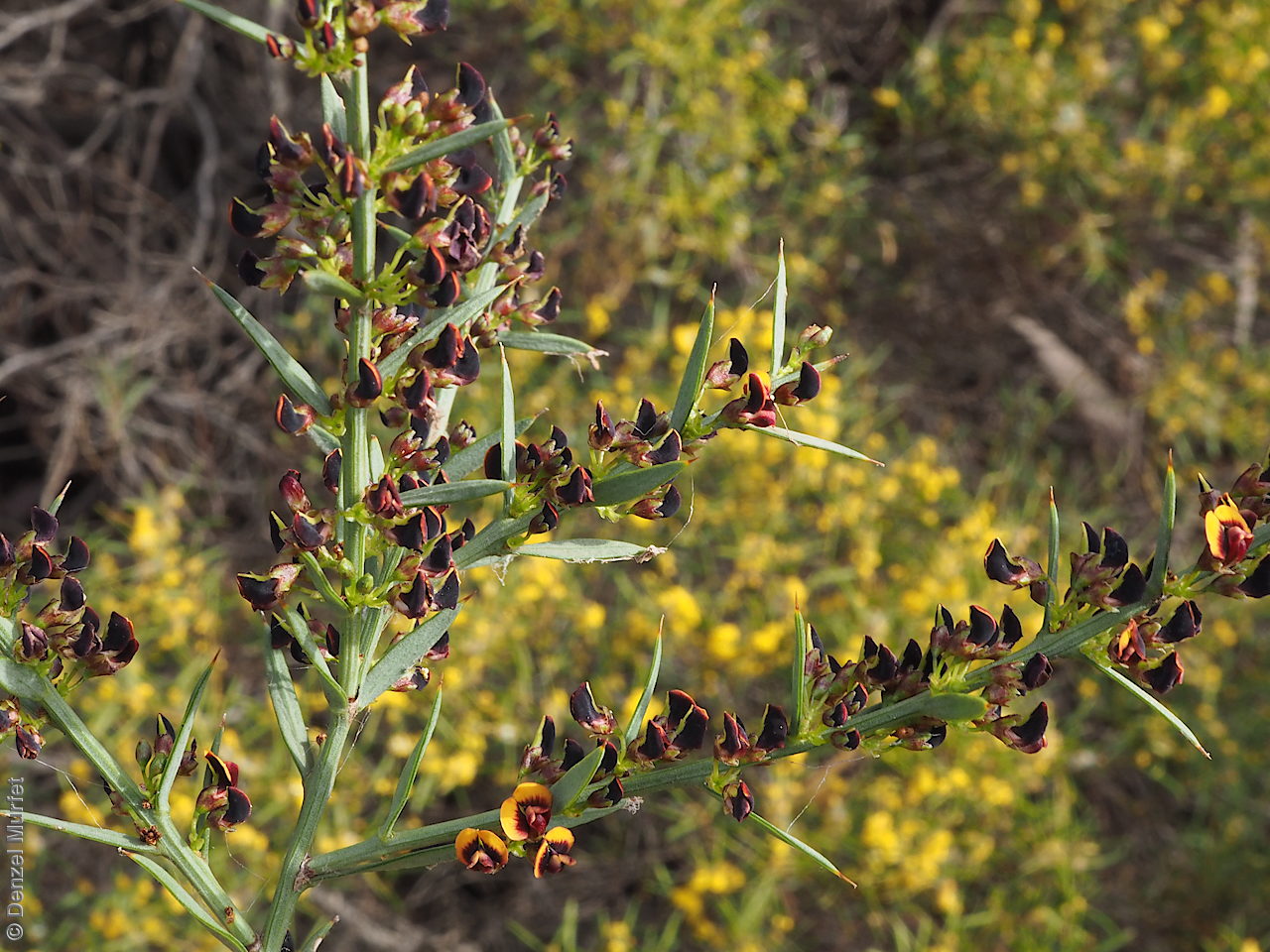

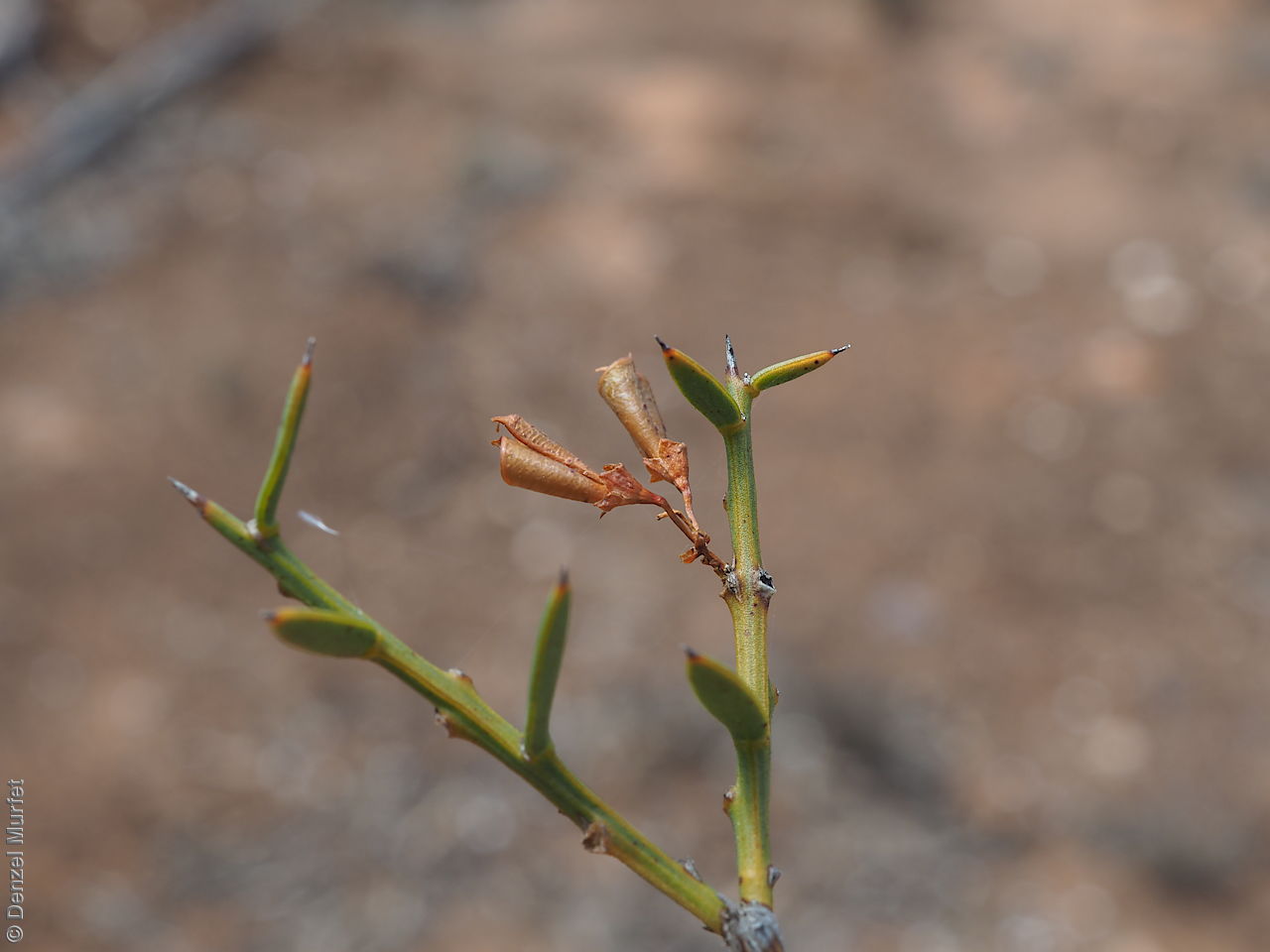

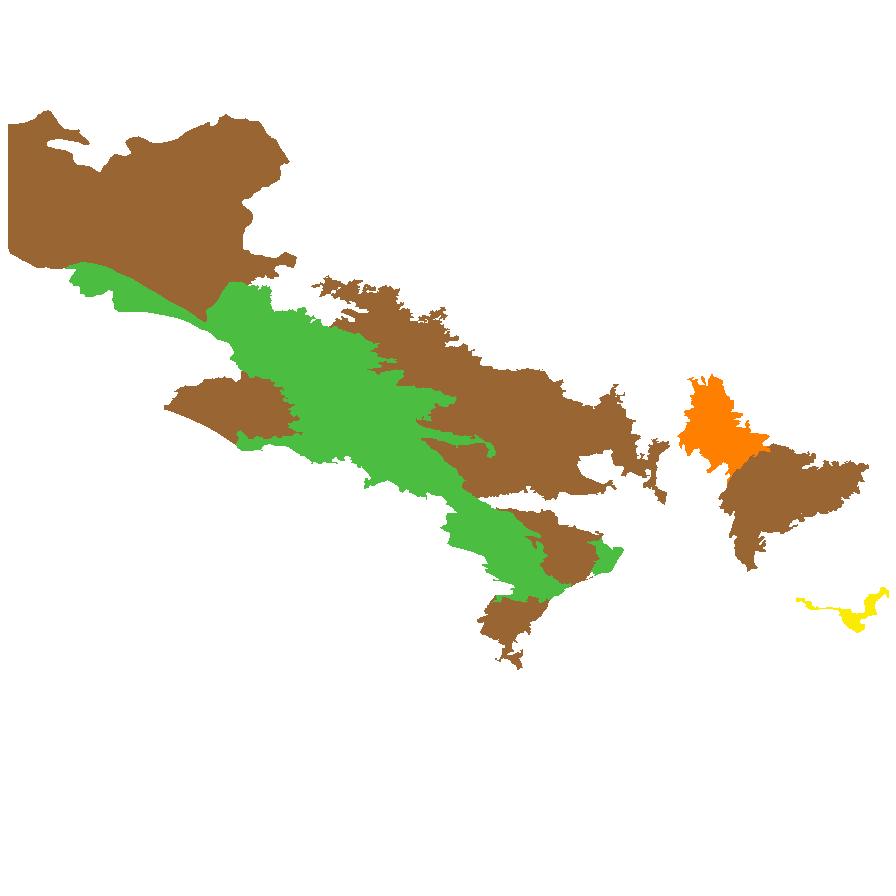
Botanical art
Common names
Inland Gorse Bitter-pea
Gorse Bitter-pea
Etymology
Daviesia named after the Rev. Hugh Davies (1739-1821), a Welsh botanist and an Anglican clergyman. Ulicifolia means having foliage like the genus Ulex (gorse). Aridicola from the Latin 'aridus' meaning dry and 'cola' meaning a dwelling, referring to the habitat of the subspecies in the southern arid areas of New South Wales, South Australia and Western Australia.
Distribution and status
Found in a central band across South Australia, growing on sandy soil in mallee. Also found in Western Australia and New South Wales. Native. Uncommon in South Australia. Uncommon in the other States.
Herbarium regions: North Western, Nullarbor, Gairdner-Torrens, Eastern, Eyre Peninsula, Murray
NRM regions: Alinytjara Wilurara, Eyre Peninsula, South Australian Arid Lands, South Australian Murray-Darling Basin
AVH map: SA distribution map (external link)
Plant description
Shrubs with glaucous vegetative parts. Branchlets heavily ribbed and very rigid. Leaves narrow-ovate to 17.5 mm long and 2.5 mm wide; upper face convex with mid-rib more prominent than below. Inflorescences 1 or 2 per axil with red-brown or brown (dull-red) pea-flowers. This subspecies differs from the other two subspecies found in South Australia in being glaucous and in having very thick phyllodes with noticeably more ridged stems and more reddish-brown flowers. Flowering between May and October. Fruits are brown asymmetrically triangular pod, beaked with the persistent style. Seed embryo type is bent.
Seed collection and propagation
Collect seeds between October and November. Collect maturing brown seed pods from the plant by either using a secateurs to cut off fruiting stems or strip the pods by hand. Leave the pods in a paper bag to dry for at least a week. Rub the pods gently with a rubber bung to dislodge the seeds. Use a sieve to separate the seeds from unwanted material. Store the dried fruit heads with a desiccant such as dried silica beads or dry rice, in an air tight container in a cool and dry place. This species has physical dormancy that needs to be overcome for the seed to germinate (e.g. nicking or softening the seed coat).